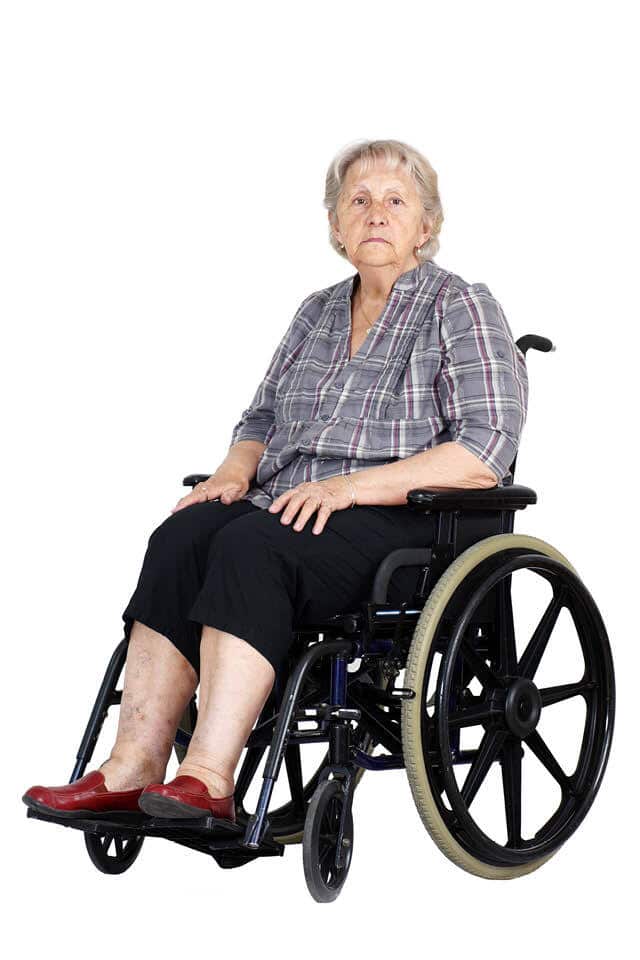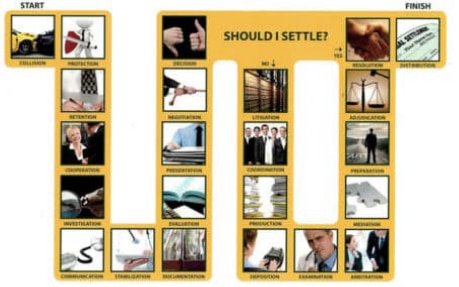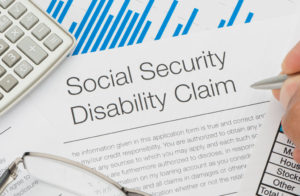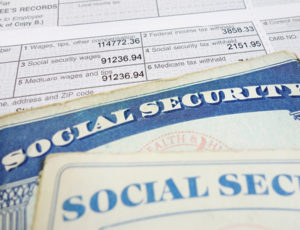YOUR GUIDE TO SOCIAL SECURITY DISABILITY CLAIMS AND LAWSUITS IN NEVADA

You’ve spent years of your life paying into the Social Security system. Now you’re disabled, and you’ve been denied benefits. That’s not fair.
Representing the Disabled in Nevada
The Government Accountability Office (GAO) found that claimants who had representatives, such as an attorney, were allowed benefits at a rate nearly three times higher than those without representatives. The Las Vegas Social Security representative is here to stand up for the compensation you’re owed.
Find out how a Social Security lawyer can help you apply or appeal your claim for disability benefits. Call us today at (702) 444-4444 or complete a free initial consultation form. We’re here because we care.
Social security disability injuries resources
OUR PROCESS

READ MORE
 Applying for SSD Benefits
Applying for SSD Benefits
The way that we help people make an application for Social Security is when someone initially calls our office, we ask a series of questions so that we are able to screen your case and make sure you have a viable case.
And then we send you the application for you to complete, and it is sent back to our office. And we personally review the applications to make sure that all of the information Social Security needs is contained in the application.
If you’re unable to work due to a disability, the sooner you get help, the better. That’s why it’s important to file your application for Social Security Disability (SSD) benefits as soon as possible after you become disabled—it can take three to five months or longer for the Social Security Administration (SSA) to process your application.
Information Needed to Apply
In order to apply, you will need to complete an application for Social Security benefits and the Adult Disability Report. When you prepare your application, you must include:
- Your Social Security number
- Your birth or baptismal certificate
- Names, addresses, and phone numbers of the doctors, caseworkers, hospitals, and clinics that took care of you and dates of your visits
- Names and dosage of all the medicine you take
- Medical records from your doctors, therapists, hospitals, clinics, and caseworkers that you already have in your possession
- Laboratory and test results
- A summary of where you worked and the kind of work you did
- A copy of your most recent W-2 Form (Wage and Tax Statement) or, if you are self-employed, your federal tax return for the past year
Our Social Security representative knows the system and we can help you collect the information needed to complete your application. We’re dedicated to getting you the benefits you deserve.
 Available Social Security Benefits
Available Social Security Benefits
When you’re disabled and can no longer work, you need financial assistance to support you and your family’s daily needs. The Social Security Administration(SSA) offers the following benefits to individuals and their families who are qualified:
Disability benefits:
If you can no longer work and have a medical condition that is expected to last at least one year or result in death
Spouse benefits:
If your spouse is age 62 or older; or your spouse, at any age, if he or she is caring for a child of yours who is younger than age 16 or disabled; or if you are a disabled widow or widower between the age of 50 and 60
Child benefits:
Your unmarried child, including an adopted child, or, in some cases, a stepchild or grandchild who is younger than age 18 or younger than age 19 if in elementary or secondary school full time; or your unmarried child, age 18 or older, if he or she has a disability that started before age 22 (the child’s disability also must meet the definition of disability for adults)
 Are You Disabled?
Are You Disabled?
Proving you’re disabled is a key component to qualifying for Social Security Disability (SSD) benefits. But collecting the medical documentation from acceptable medical sources can be frustrating and time-consuming.
Definition of a Disability
According to the Social Security Administration (SSA), a disability is defined as:
the inability to engage in any substantial gainful activity (SGA) by reason of any medically determinable physical or mental impairment(s) which can be expected to result in death or which has lasted or can be expected to last for a continuous period of not less than 12 months.
When you apply for benefits, the SSA will evaluate if you’ve worked enough years to qualify and your current work status. If you meet the work-related requirements, your local Disability Determination Services (DDS) office will review your medical evidence and ask your doctors or medical providers about:
- What your medical condition is
- When your medical condition began
- How your medical condition limits your activities
- What the medical tests have shown
- What treatment you have received
- Your ability to do work-related activities
 How Work Is a Factor
How Work Is a Factor
You work for years, paying Social Security taxes so that in the event you become disabled and can no longer work, you have financial support. When you apply for Social Security Disability (SSD) benefits, the Social Security Administration (SSA) follows strict guidelines to determine if you are eligible for benefits, based on your work history and ability to do other work.
Work History
In most cases, the SSA requires that you pass an earnings test:
- A “recent work” test based on your age at the time you became disabled
- A “duration of work” test to show that you worked long enough under Social Security
Ability to Work
The SSA will also determine if your disability is so severe that you:
- Can no longer do the work you did before
- Cannot do any other type of work
 How SSD Claims Are Evaluated
How SSD Claims Are Evaluated
Frequently, when people attend a hearing and they are not represented, a judge will continue the hearing and request that the person obtain representation. The reason for this is frequently, the medical records are not up to date in the case, and the judge needs all of the information in order to make the most accurate decision in the case.
The Social Security Administration (SSA) considers a number of factors when evaluating your application for disability benefits. Completing your application and filing an appeal can be overwhelming without professional assistance.
DDS Evaluation
Your local Social Security office, Disability Determination Services (DDS), uses a five-step process to determine if you are eligible for disability benefits:
- Are you working?
If you are working and your earnings average more than a certain amount (amount changes each year) each month, DDS generally will not consider you disabled. - Is your medical condition “severe”?
Your medical condition must significantly limit your ability to do basic work activities—such as walking, sitting, and remembering—for at least one year. - Is your medical condition on the List of Impairments?
A number of potentially disabling conditions are listed on the SSA’s List of Impairments. If your condition(s) is not on this list, DDS looks to see if your condition is as severe as a condition that is on the list. - Can you do the work you did before?
DDS determines if your medical condition prevents you from being able to do the work you did before. - Can you do any other type of work?
Your medical condition, your age, education, past work experience, and any skills you may have that could be used to do other work will also be considered.
 Supplemental Security Income
Supplemental Security Income
You apply for Supplemental Security Income (SSI) benefits because you need help supporting your family’s daily expenses due to a disability or your age. Our Las Vegas Social Security representative wants to work with you to get the benefits you need.
Available Benefits
SSI benefits are available to individuals who cannot work and have little to no income. Unlike Social Security Disability (SSD) benefits, which are available to workers who have paid Social Security taxes, SSI benefits are funded by the general tax revenues and are available to U.S. citizens who meet certain qualifications and are:
- Aged
You are aged 65 or older.
- Blind
You have “statutory blindness,” which is a central visual acuity of 20/200 or less in your better eye with correcting lenses; or you have a visual field limitation in your better eye, with the widest diameter of the visual field being no greater than 20 degrees.
- Disabled
You have a physical or mental impairment, which can be expected to result in death or has lasted or can be expected to last for a continuous period of not less than a year. If you are under age 18, your impairment results in marked and severe functional limitations, and if you are age 18 and older, your impairment results in the inability to do any substantial gainful activity.
Like SSD benefits, under certain circumstances, your SSI benefits may be terminated or reduced if you return to work, your medical condition improves, or other factors. Our Las Vegas Social Security representative is here to answer your questions. Contact Richard Harris Law Firm today.
Social Security Disability FAQ
What benefits are available to me?
The SSA offers the following benefits:
- Disability benefits:
If you can no longer work and have a medical condition that is expected to last at least one year or result in death - Spouse benefits:
If your spouse is age 62 or older; or your spouse, at any age, if he or she is caring for a child of yours who is younger than age 16 or disabled; or if you are a disabled widow or widower between the ages of 50 and 60 - Child benefits:
Your unmarried child, including an adopted child, or, in some cases, a stepchild or grandchild who is younger than age 18 or younger than age 19 if in elementary or secondary school full time; or your unmarried child, age 18 or older, if he or she has a disability that started before age 22 (the child’s disability also must meet the definition of disability for adults)
Richard Harris Personal Injury Law Firm can help you determine if you may be eligible for any of these benefits.
Does the Social Security Administration (SSA) consider my work history when evaluating my application for benefits?
Yes. In most cases, the SSA requires that you pass an earnings test:
- A recent work test based on your age at the time you became disabled
- A duration of work test to show that you worked long enough under Social Security
How does the SSA determine if I can return to work?
The SSA will determine if your disability is so severe that you can no longer work by evaluating if you:
- Can no longer do the work you did before
- Cannot do any other type of work
Understanding these requirements can be difficult. Richard Harris Personal Injury Law Firm knows how the SSA works. We’re here to help you navigate the system and help you determine if you are qualified for benefits.
What is the definition of a disability?
According to the SSA, a disability is defined as:
the inability to engage in any substantial gainful activity (SGA) by reason of any medically determinable physical or mental impairment(s) which can be expected to result in death or which has lasted or can be expected to last for a continuous period of not less than 12 months.
How does the SSA determine that I am eligible for benefits?
When you apply for benefits, the SSA will evaluate if you’ve worked enough years to qualify and your current work status. If you meet the work-related requirements, your local Disability Determination Services (DDS) office will review your medical evidence and ask your doctors or medical providers about:
- What your medical condition is
- When your medical condition began
- How your medical condition limits your activities
- What the medical tests have shown
- What treatment you have received
- Your ability to do work-related activities
What’s the difference between SSD and SSI?
Supplemental Security Income (SSI) benefits are available to individuals who cannot work and have little to no income. Unlike SSD benefits, which are available to workers who have paid Social Security taxes, SSI benefits are funded by the general tax revenues and are available to U.S. citizens who meet certain qualifications and are aged, blind, and disabled.
How do I apply for SSD benefits?
In order to apply, you will need to complete an application for Social Security benefits and the Adult Disability Report. When you prepare your application for SSD benefits, you must include:
- Your Social Security number
- Your birth or baptismal certificate
- Names, addresses, and phone numbers of the doctors, caseworkers, hospitals, and clinics that took care of you and dates of your visits
- Names and dosage of all the medicine you take
- Medical records from your doctors, therapists, hospitals, clinics, and caseworkers that you already have in your possession
- Laboratory and test results
- A summary of where you worked and the kind of work you did
- A copy of your most recent W-2 Form (Wage and Tax Statement) or, if you are self-employed, your federal tax return for the past year


































